no country for old wainds
Active Member
- Nov 23, 2002
- 26,860
- 9,723
- 113
20) Kidnapped Coed (Dir. Frederick R. Friedel)
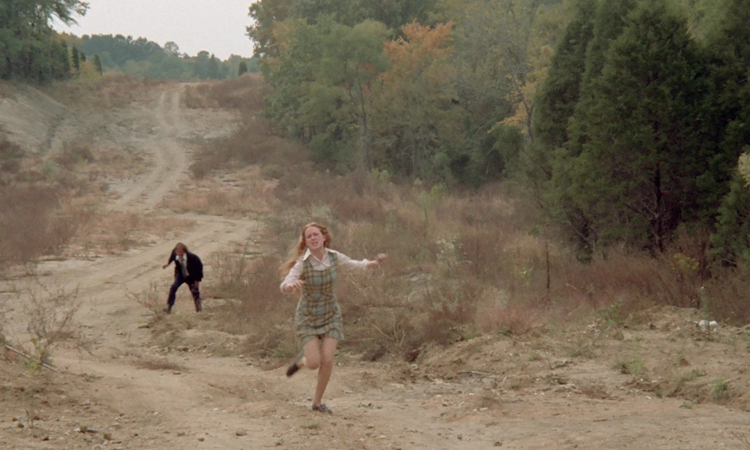
AKA Date With A Kidnapper. a violent exploitation film that doubles as an eccentric, roughshod Badlands, lyrical and reflective in its portrayal of shattered innocence and yearning, even while our protagonists are fighting off a crazy old man with a pitchfork or hiding from an army of middle-aged birdwatchers.
19) All the President's Men (Dir. Alan J. Pakula)
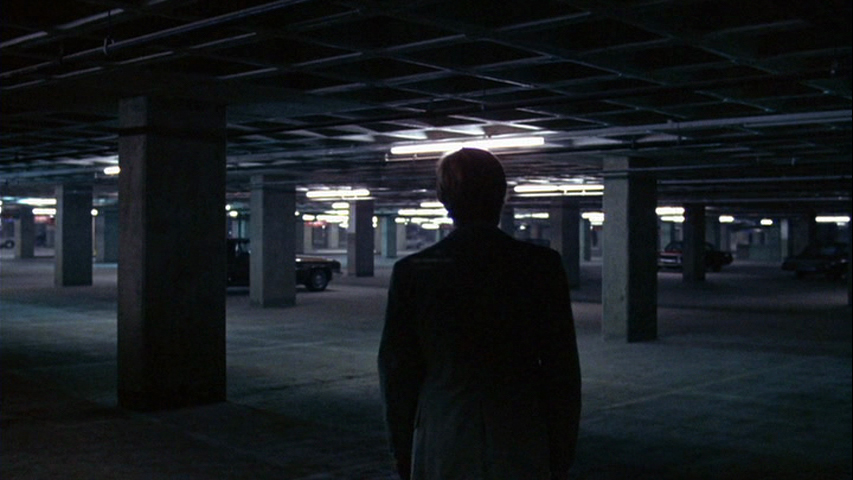
the way the final film in pakula's "paranoia trilogy" trusts audiences to respond to the ostensibly dull minutiae of reporting in this historically important context seems almost a miracle today (just look at how Spotlight, a lesser spawn of this film praised by critics for its understatement and realism, spoonfeeds and manipulates the viewer in comparison). shame it just ends halfway through as if they ran out of budget although, again, i prefer that to the spielbergian crowdpleasing it'd probably conclude with today.
18) Who Can Kill A Child? (Dir. Narciso Ibáñez Serrador)
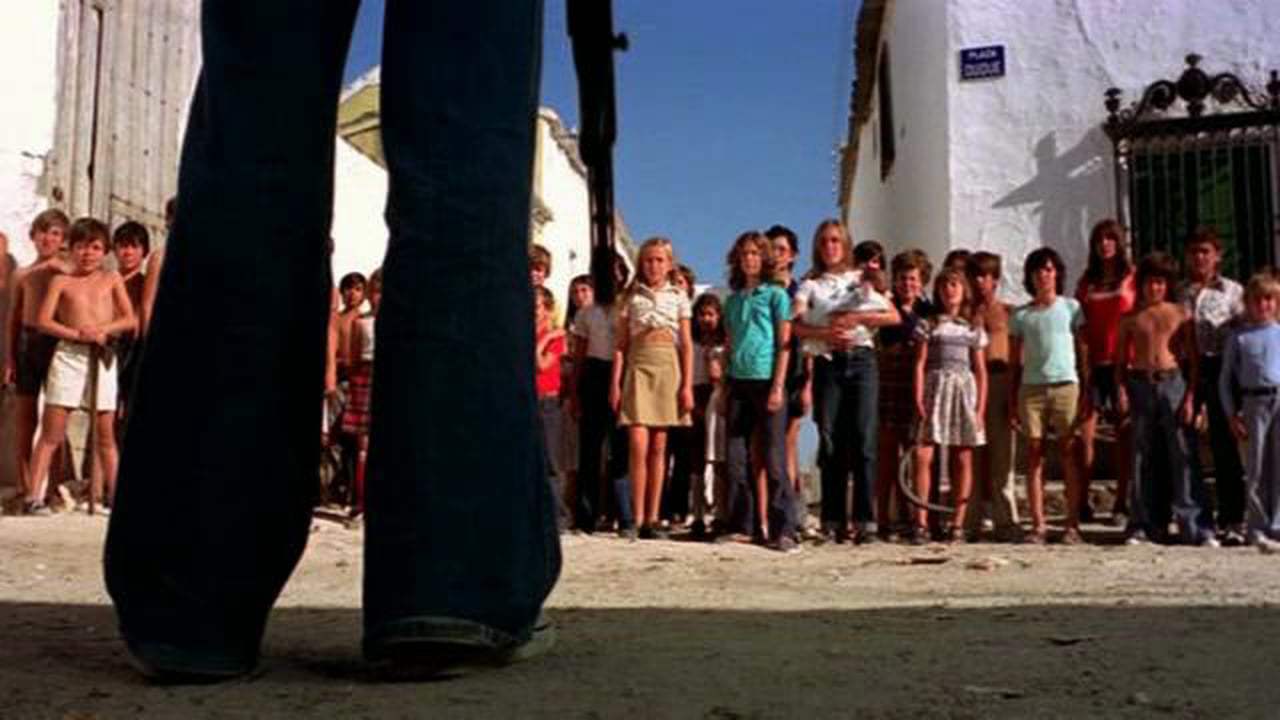
a blunt, brutal horror classic about the way we create our own monsters, the poisonous legacy we inflict on future generations, manufacturing a situation which demonstrates how easy it is to cheer on the killing of children, sparing nobody a feeling of complicity. it isn't exactly a subtle film, but possesses a jolting directness that reminds of peckinpah, as well as an eye for provocative, harrowing images.
17) Eaten Alive (Dir. Tobe Hooper)
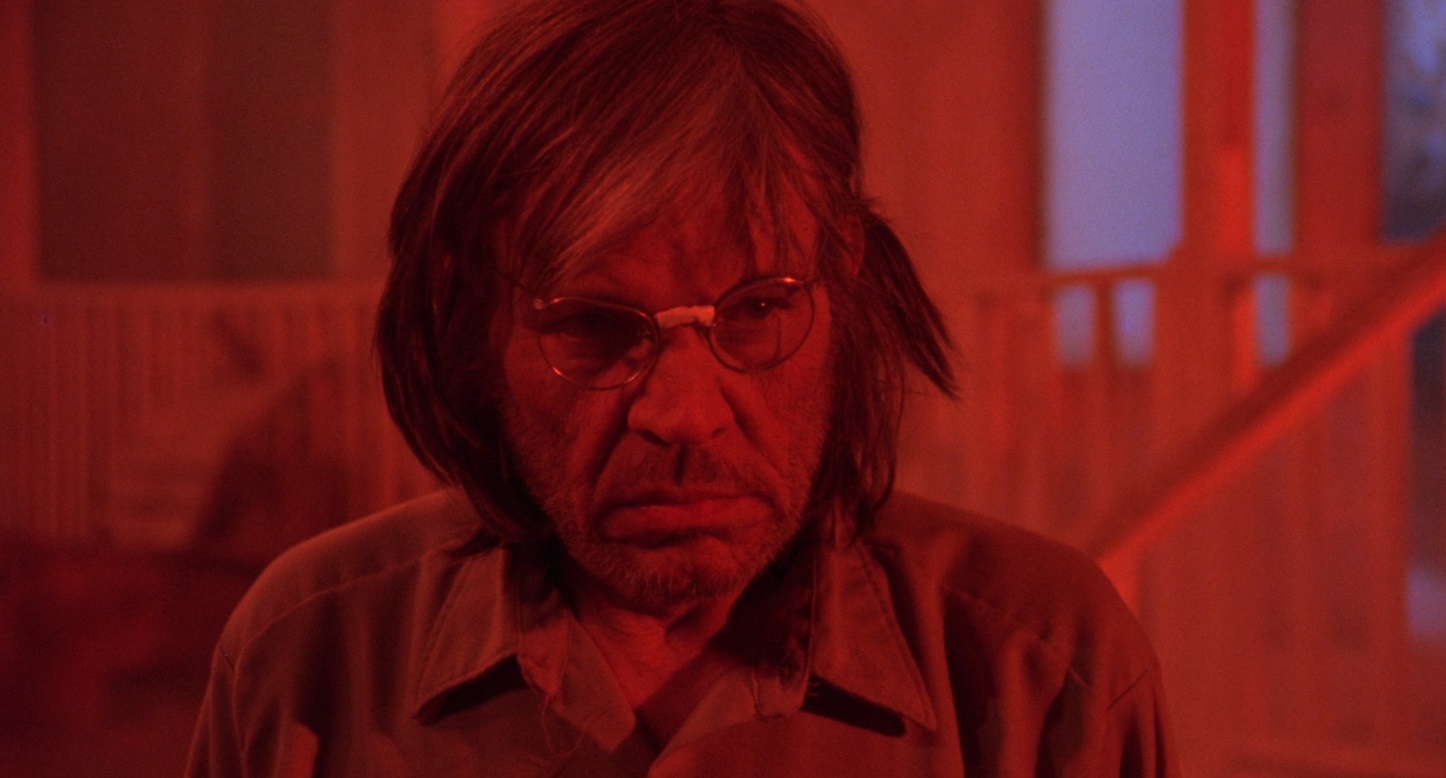
the aggressively synthetic, claustrophobic, sleazy yin to The Texas Chainsaw Massacre's yang. a deranged, mumbling hotel clerk straight out of Psycho (although bates never had to multitask like this poor bastard), his purgatorial hick hotel in precarious disrepair atop a croc-infested abyss, suspended in a shroud of fog and dingy primary colors and assaultive, cacophonous sounds. lovemaking is harmonised with the screams of mother and child; for the reptile to feed, the mammal must suffer. william finley's unhinged cameo is one for the ages.
16) Keoma (Dir. Enzo G. Castellari)
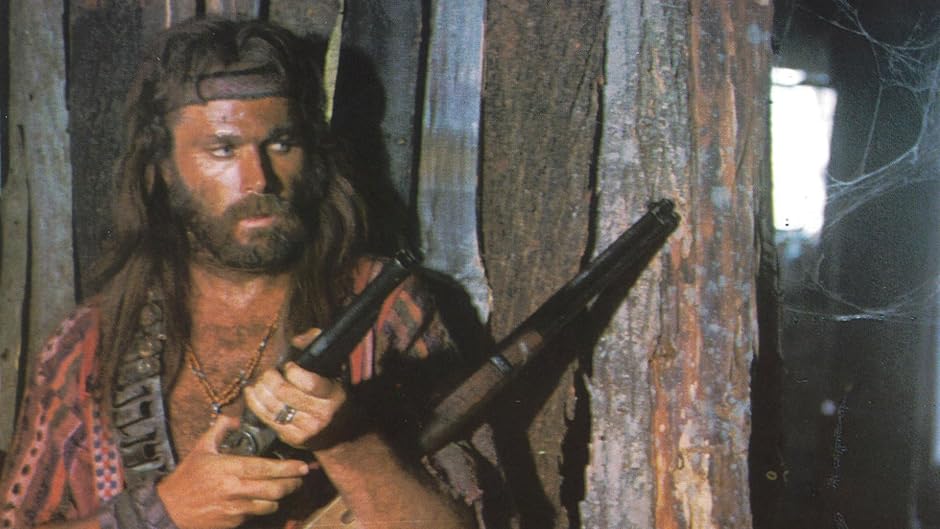
for all its flaws (including a soundtrack that sounds really cool as long as you block out the lyrics, which describe in earnest what we're seeing on screen), this is a volatile, melancholy western filmed in the language of memories and fevered dreams, and those close-ups of keoma's face continue to stay with me. i'd also recommend The Big Racket, a gritty italian crime movie from the same year and same director, which almost made this list as well.
15) Assault on Precinct 13 (Dir. John Carpenter)
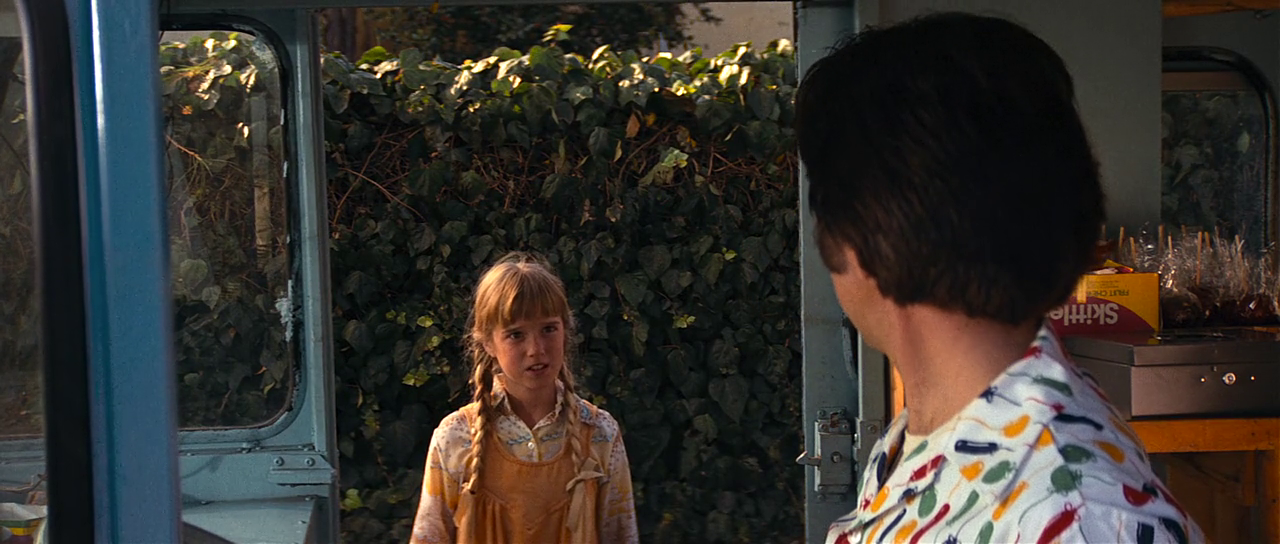
the opening act of john carpenter's low-budget sophomore feature is a tour de force of tense, spare, suggestive action (or borderline horror, really) filmmaking to surpass even its great inspiration Rio Bravo, announcing the arrival of a master. part of me wishes he took the length from Rio Bravo as well, so we could spend more time with these characters and move even further away from formula, but perhaps that would slacken the tension.
14) God Told Me To (Dir. Larry Cohen)
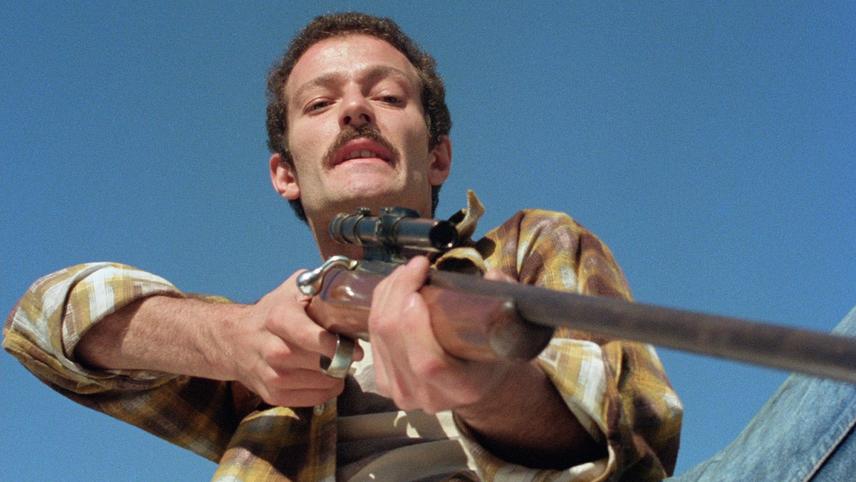
in some ways this is to new york what They Live is to los angeles; both are idiosyncratic little B-movies that marry a gritty, ground-level perspective of their respective cities with an out-there sci-fi conspiracy--although this one trades carpenter's class warfare for more of a catholic guilt angle, and is twice as batshit.
13) Family Plot (Dir. Alfred Hitchcock)

hitchcock's swansong was a dopey, (literally) winking, self-consciously hitchcockian shaggy dog story about two bickering couples who get tangled in one another's schemes. it makes fun of new hollywood, the supernatural, marriage, rich people, poor people, and a range of his own films and tropes, but the ultimate purpose is a celebration of deception and, by extension, film itself. it's minor hitchcock but delighted to be so, utterly relaxed and assured and likeable (while still being as tightly constructed and gleefully perverse as ever), and the best way for an old legend to bow out: not giving a damn.
12) Chinese Roulette (Dir. Reiner Werner Fassbinder)
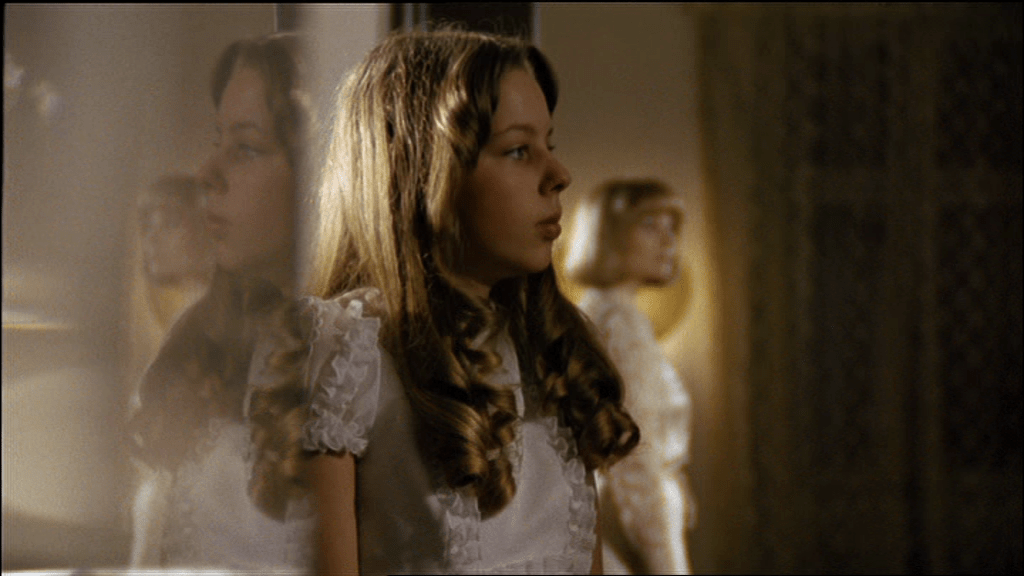
there's an allegory about fascism in here if you look closely enough, but first and foremost it's a sick, savage little drama wherein a child punishes her passive-aggressive parents by firstly having them discover one another's affairs, then constructing a game that allows each character to covertly unload scathing criticisms onto one another until violence erupts. in lesser hands it'd be too static and theatrical, but fassbinder's camera glides and circles hypnotically around these mannequin characters (including three legendary beauties anna karina, macha meril and margit carstensen) in a way not seen since resnais' pomp, using every reflective surface to its advantage. i didn't get the chance to see fassbinder's other movies from this year, else maybe they'd be here too.
11) Rocky (Dir. Silvester Stallone)
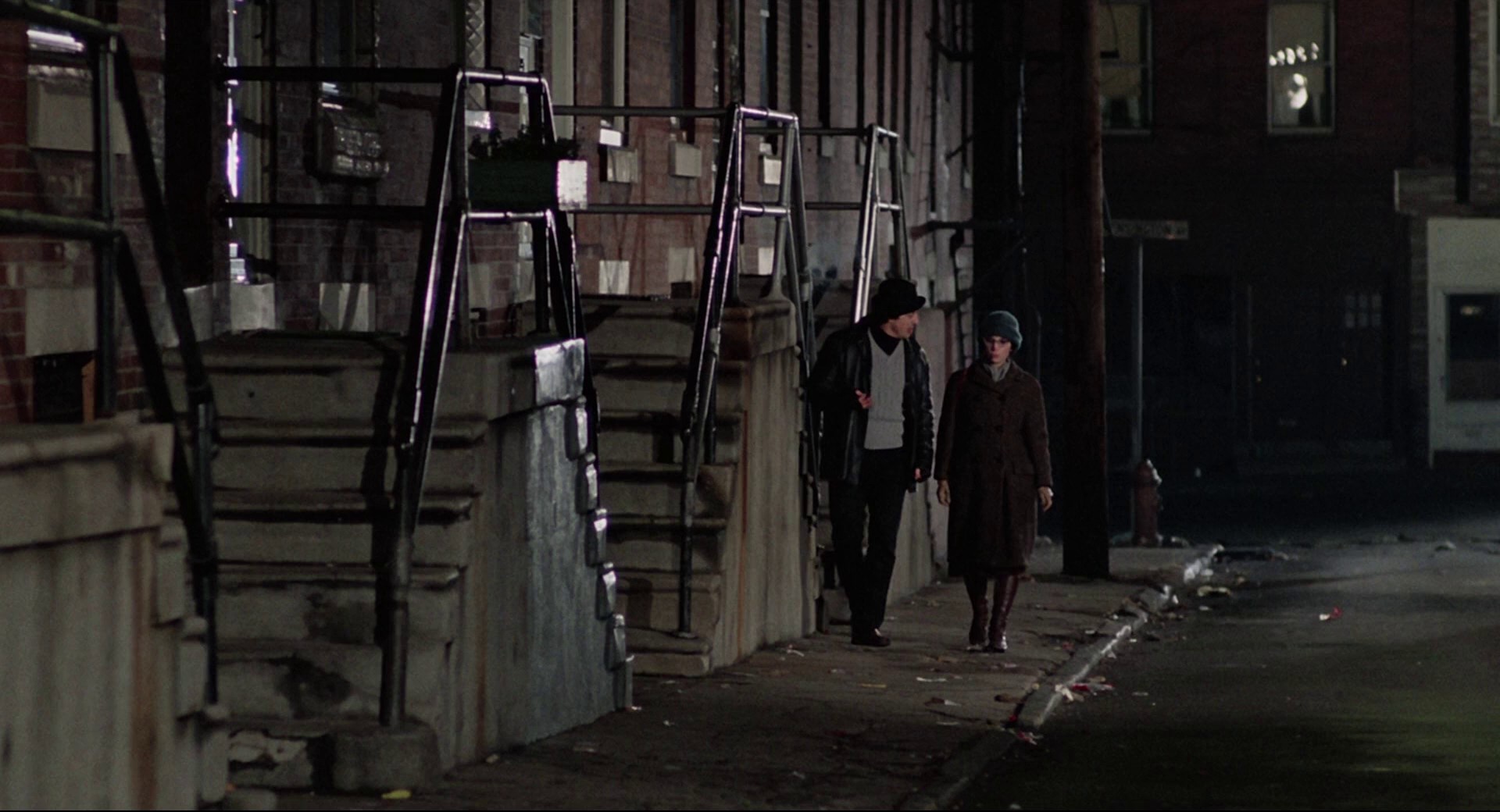
my least favourite part of this film is the part that everyone remembers, and i've deliberately chosen one of the earlier, more understated images to reflect my preference for its less iconic passages. it's easily forgotten that the first hour is closer to Taxi Driver than the inspiring underdog uplift we usually associate with Rocky, documenting the struggles of a disenfranchised, barely eloquent working class veteran as he tries in his own awkward sloppy way to get a girl and make something of himself. almost as raw and human as that other great seventies boxing movie Fat City.
10) The Man Who Fell to Earth (Dir. Nicolas Roeg)
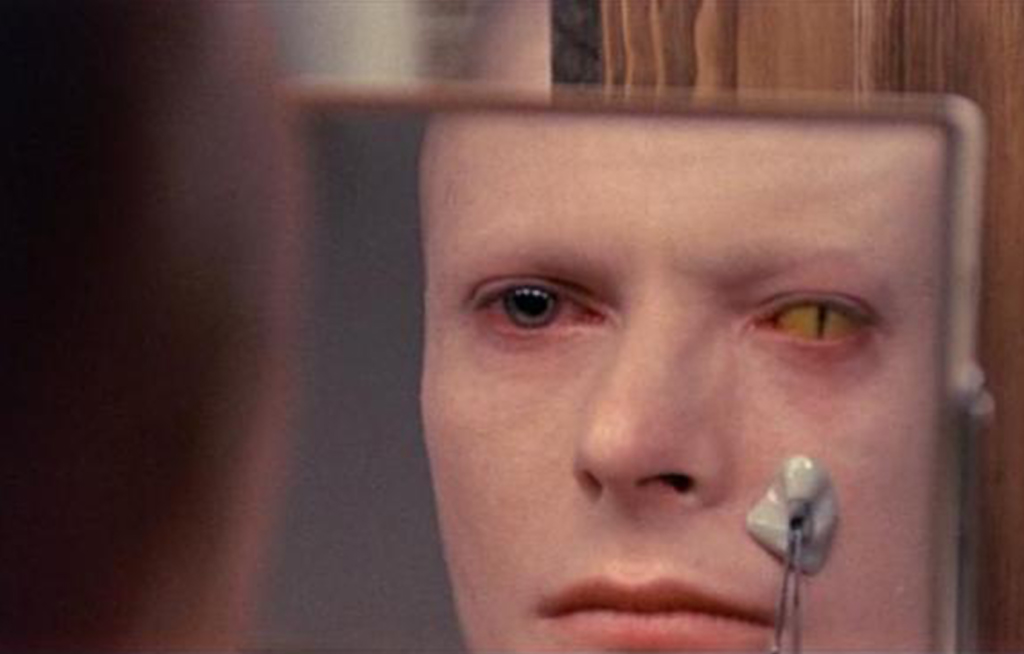
the way roeg withholds so much exposition and rejects narrative progress or catharsis is genuinely radical here, if a little frustrating on first viewing. putting aside the extraterrestrial element, it's a movie about a guy who starts out earning millions in pursuit of a goal before slowly falling into the same traps, settling into the same ruts, as those around him, until the film just meanders and deflates along with him - i'm not sure i've seen anything like that before (i suppose Citizen Kane is the seed, but that's much more of a traditional rise and fall), and it makes the second half of Under The Skin (a film this surely influenced) seem even more conventional than it already did. the way roeg shoots bowie and his experiences of our world are something else, man, and there are so many weird little touches and details (although candy clark is a little much for me, i must admit). i could see this rising further in my estimation over time.
9) The Outlaw Josey Wales (Dir. Clint Eastwood)
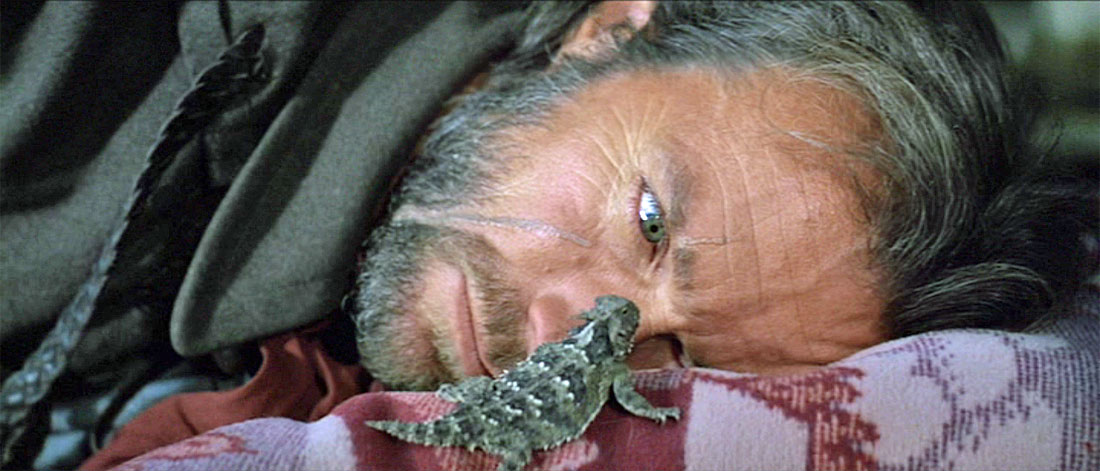
eastwood's old-fashioned idealism has often bordered on being didactic and hokey and this threatens to drift too far into that territory at first, but he's also a director of great sensitivity and mythic resonance, capable of drilling deep wells of pathos out of what couldn't possibly work on the page, as evidenced by the entire second half of this film, which ends up being worthy of the john ford works it follows from. "i guess we all died a little in that damn war."
8) The Tenant (Dir. Roman Polanski)

this is one i didn't get a chance to rewatch, but i recall one of the great nightmares of cinema; a nasty, paranoid and blackly funny film about a man (played by polanski himself) who starts boarding in an apartment from which the previous tenant committed suicide, and gradually begins turning into her. nobody does grotty, oppressive little horror movies quite like polanski.
7) I Love You... Me Neither (Dir. Serge Gainsbourg)
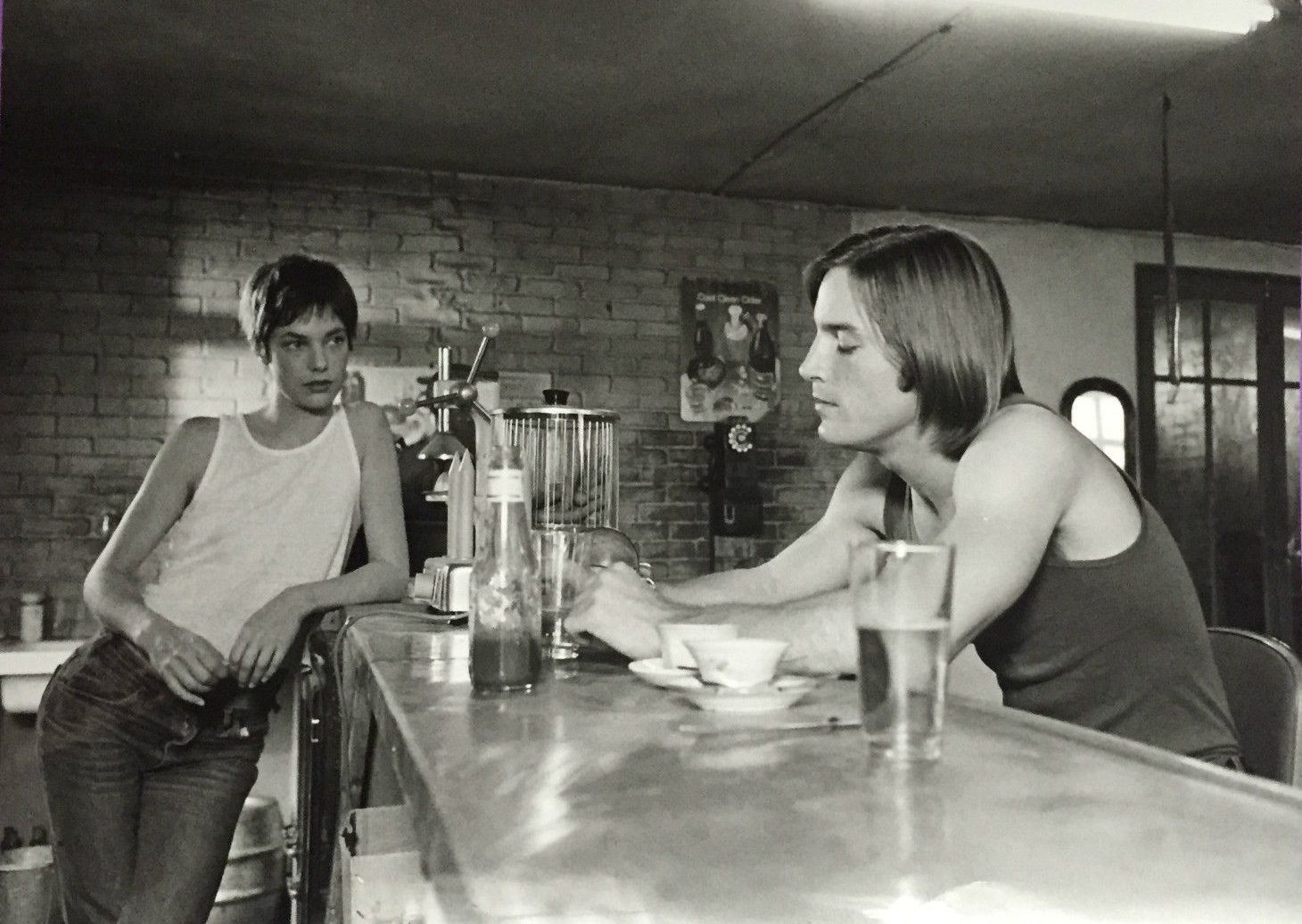
serge gainsbourg's art-porn tribute to his song of the same name, a go-nowhere road movie romance between a gay garbage man and a flat-chested tomboy, the former only able to orgasm when he sticks it up her ass, the latter unable to stop screaming in pain every time he does so. it's fetishistic, fucked up and very funny, with an amazing sense of place and atmosphere, finding a lot of offhand beauty and tragedy amidst the degeneracy.
6) Kings of the Road (Dir. Wim Wenders)
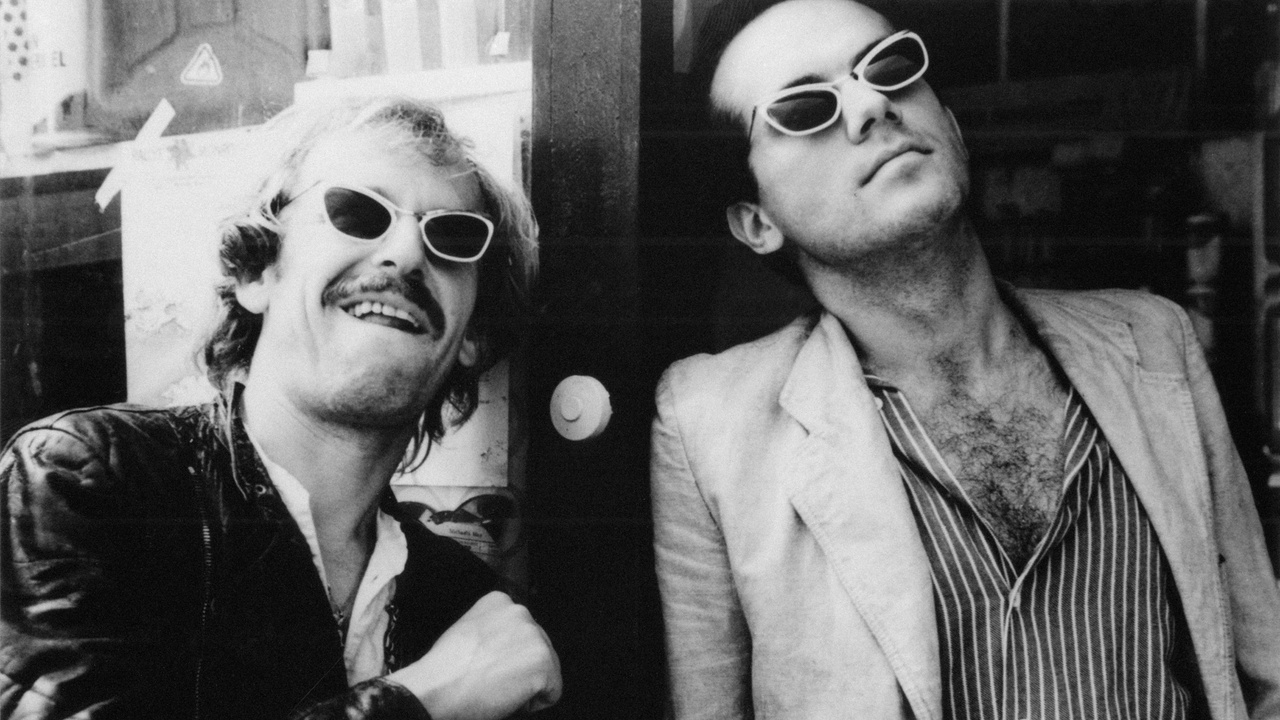
perhaps the most quintessential road movie i've ever seen; a moody, near-plotless slow burn through a yawning german landscape that externalises the existential plight of its two central misfits as they wrestle with their loneliness and malaise before finally confronting their pasts. it feels like you spend months with these characters (it's a necessarily long film), and i wouldn't have it any other way.
5) Mikey and Nicky (Dir. Elaine May)

two old friends and gangsters, played by john cassavetes and peter falk in a film made in the style of the former, embark on a dual dark night of the soul where they open up about their past, their hurts and regrets, rage and resentments, their views on life and death and everything in between. two rich and complicated characters spilling their guts out to each other in one of the most intense, acidic and sad documents of masculinity and male bonding on record, with an ending that's utterly devastating. cassavetes himself would've been proud to direct this one, and it's the closest anybody ever got to replicating his brilliance.
4) Mr. Klein (Dir. Joseph Losey)
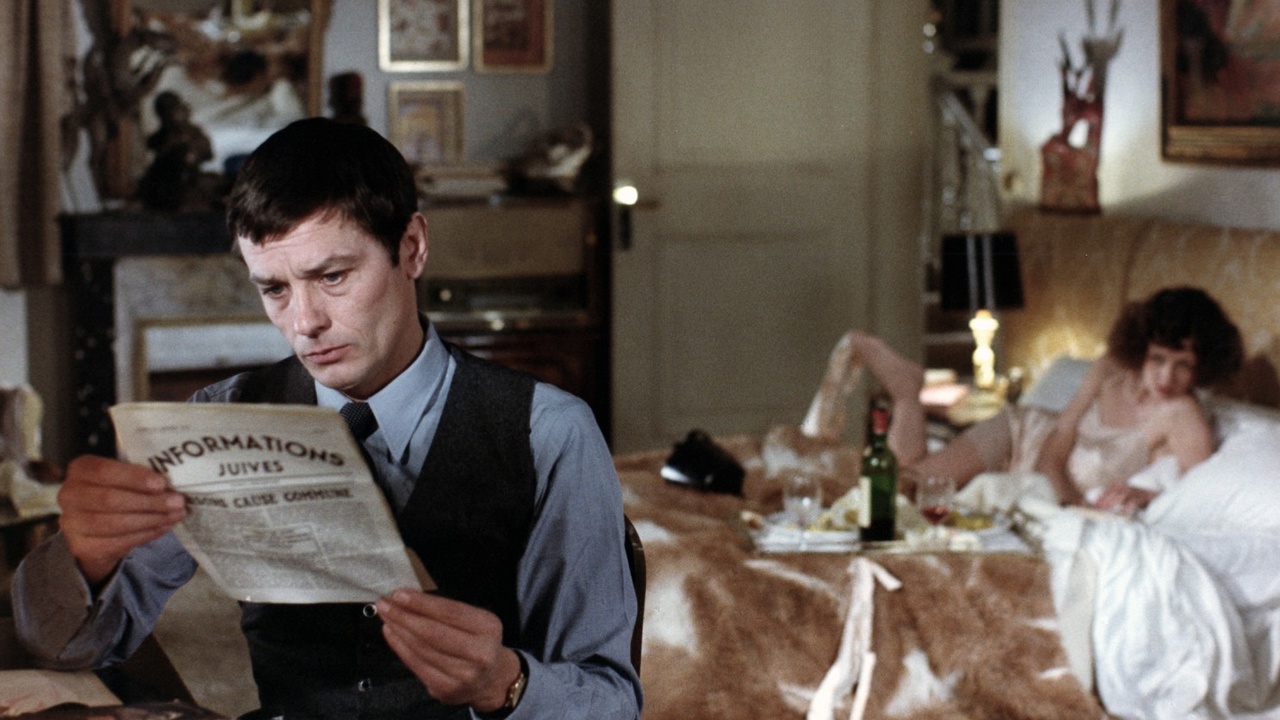
to date, this is probably my favourite holocaust movie. not sure if this'll mean anything to anyone here, but it's the film christian petzold (Phoenix, Barbara) has been trying to make his whole career. it's about an art dealer (the brilliant alain delon, of Le Samourai fame, at his severe, proud, penetrating best) in nazi-occupied paris who makes money off jews who are selling off their possessions on the cheap to fund leaving france. his identity is suddenly stolen by a jewish conspirator, and the film follows the increasingly tense process of trying to distinguish himself from the other "mr. klein" (first and foremost by actually finding him, if he exists at all) and getting the suspicious germans off his back. losey, as always in my experience, teases out the mystery, paranoia and outrage of this scenario as it slowly, quietly builds to an unbearable intensity.
3) Carrie (Dir. Brian De Palma)
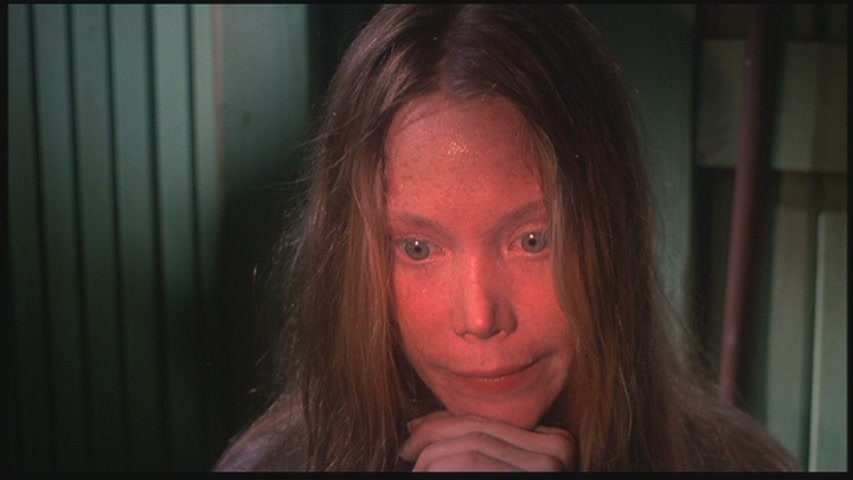
i can't improve on what challenge_everything said about this one.
2) Taxi Driver (Dir. Martin Scorsese)
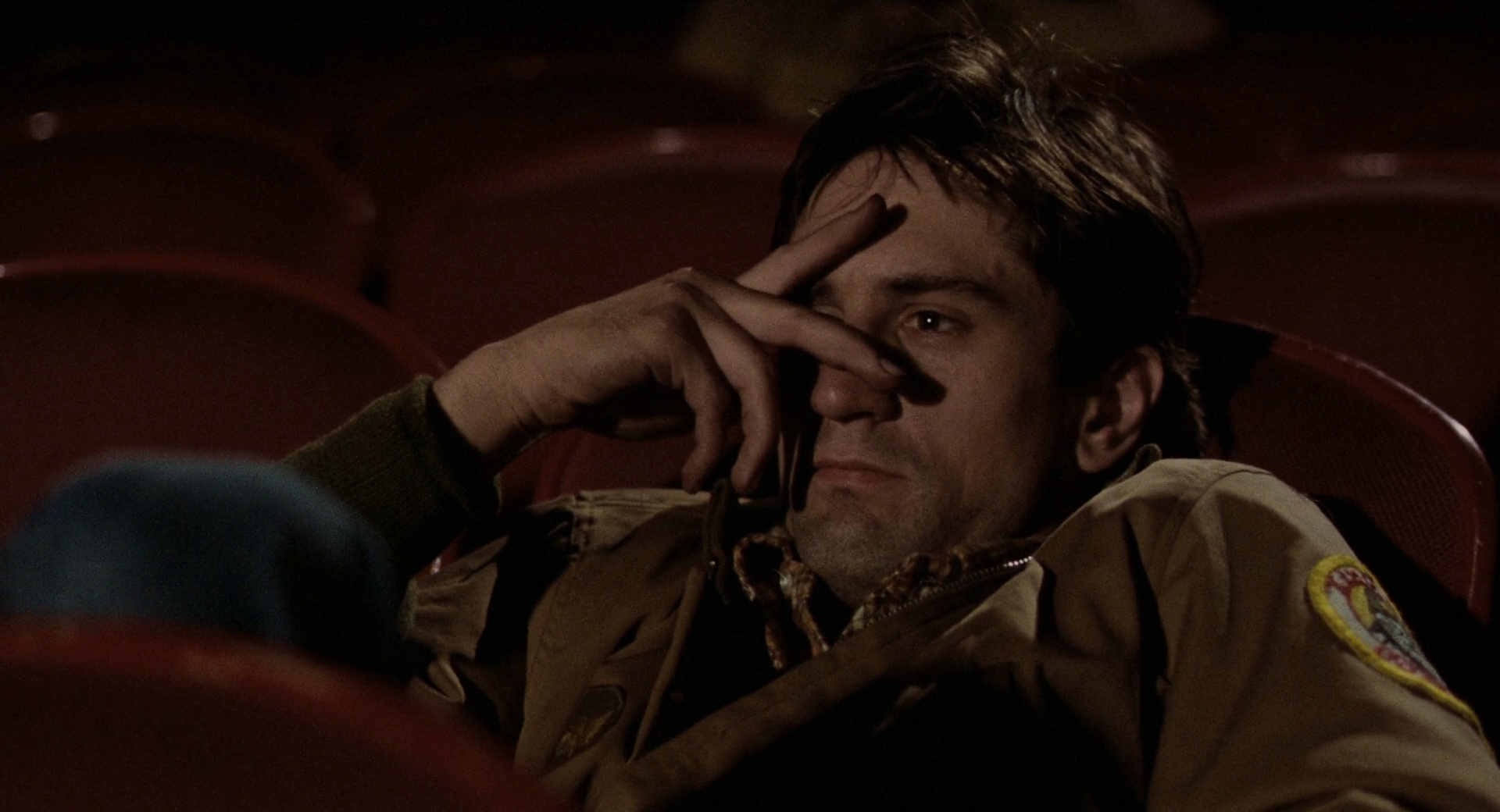
not the redemption arc some have painted it as over the years--even if you don't read the epilogue as ironic or even a fantasy (despite what scorsese and schrader may say, that letter from iris' parents sounds suspiciously like the kind of bullshit travis wrote to his own parents not long before), the final shot takes us back to exactly where we started, with travis as a ticking timebomb once again. this is a film about "god's" lonely man, a self-styled cowboy who responds to his own failure to integrate by resentfully withdrawing into fantasies and delusions of grandeur--into movies, in other words (the film is absolutely littered with movie references), which is partly why i suspect much of what happens toward the film's conclusion to be increasingly fantastical wish-fulfilment... although maybe that's wish-fulfilment on my part, because i do think that epilogue strains credulity otherwise. many have spoken of the appropriateness of the "walking contradiction" lyric; what strikes me is how perfectly it also applies to scorsese, whose films are still wrestled with after all this time in part because he's so conflicted in how he feels about cinema, about his own films and characters. bickle is the perfect character for scorsese, then, which may be why Taxi Driver is arguably his greatest triumph, the one where every element is moving in the same direction--from schrader's greatest script to de niro's greatest performance (along with The King of Comedy) to herrmann's greatest score (along with Vertigo) to foster's prodigious brilliance--without sacrificing any of the rawness or complexity.
1) The Killing of a Chinese Bookie (Dir. John Cassavetes)
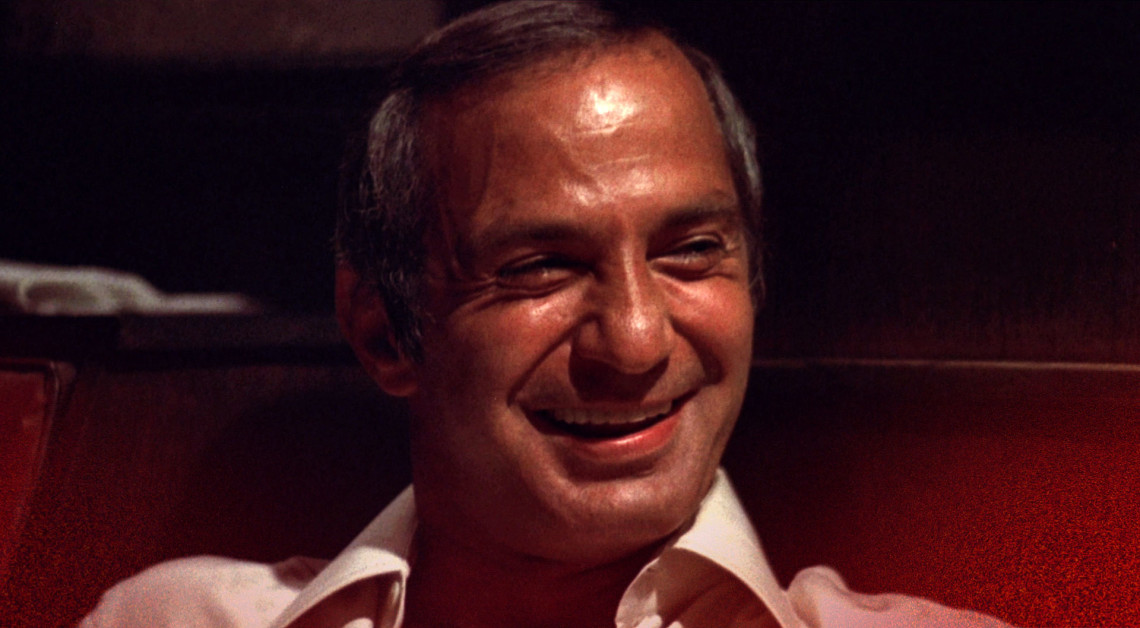
cassavetes' up close and personal style of filmmaking drags me into his world and connects me intimately to his characters, so that i can feel the crushing weight of their sadness and drunken desperation as though it's my own. that's especially true when the performances are as good as ben gazzara here, endlessly trying to bluff and charm and posture his way out of the shit. in a sense this is cassavetes doing seventies noir, and it does share some of that movement's despairing fatalism, but he doesn't really care about genre, he cares about people, blowing up their facades so we can see the cracks and love them more for it. i love so many little scenes here; the purchasing of the hamburgers ("my wife hates waste. paper comes from trees! she can't even throw the garbage out!"), the waitress' audition, mr. sophistication's complaint, rachel's mother, and then of course there's the hit itself, one of the most harrowing i can remember.
the top 10 formatted more simply:

AKA Date With A Kidnapper. a violent exploitation film that doubles as an eccentric, roughshod Badlands, lyrical and reflective in its portrayal of shattered innocence and yearning, even while our protagonists are fighting off a crazy old man with a pitchfork or hiding from an army of middle-aged birdwatchers.
19) All the President's Men (Dir. Alan J. Pakula)

the way the final film in pakula's "paranoia trilogy" trusts audiences to respond to the ostensibly dull minutiae of reporting in this historically important context seems almost a miracle today (just look at how Spotlight, a lesser spawn of this film praised by critics for its understatement and realism, spoonfeeds and manipulates the viewer in comparison). shame it just ends halfway through as if they ran out of budget although, again, i prefer that to the spielbergian crowdpleasing it'd probably conclude with today.
18) Who Can Kill A Child? (Dir. Narciso Ibáñez Serrador)

a blunt, brutal horror classic about the way we create our own monsters, the poisonous legacy we inflict on future generations, manufacturing a situation which demonstrates how easy it is to cheer on the killing of children, sparing nobody a feeling of complicity. it isn't exactly a subtle film, but possesses a jolting directness that reminds of peckinpah, as well as an eye for provocative, harrowing images.
17) Eaten Alive (Dir. Tobe Hooper)

the aggressively synthetic, claustrophobic, sleazy yin to The Texas Chainsaw Massacre's yang. a deranged, mumbling hotel clerk straight out of Psycho (although bates never had to multitask like this poor bastard), his purgatorial hick hotel in precarious disrepair atop a croc-infested abyss, suspended in a shroud of fog and dingy primary colors and assaultive, cacophonous sounds. lovemaking is harmonised with the screams of mother and child; for the reptile to feed, the mammal must suffer. william finley's unhinged cameo is one for the ages.
16) Keoma (Dir. Enzo G. Castellari)

for all its flaws (including a soundtrack that sounds really cool as long as you block out the lyrics, which describe in earnest what we're seeing on screen), this is a volatile, melancholy western filmed in the language of memories and fevered dreams, and those close-ups of keoma's face continue to stay with me. i'd also recommend The Big Racket, a gritty italian crime movie from the same year and same director, which almost made this list as well.
15) Assault on Precinct 13 (Dir. John Carpenter)

the opening act of john carpenter's low-budget sophomore feature is a tour de force of tense, spare, suggestive action (or borderline horror, really) filmmaking to surpass even its great inspiration Rio Bravo, announcing the arrival of a master. part of me wishes he took the length from Rio Bravo as well, so we could spend more time with these characters and move even further away from formula, but perhaps that would slacken the tension.
14) God Told Me To (Dir. Larry Cohen)

in some ways this is to new york what They Live is to los angeles; both are idiosyncratic little B-movies that marry a gritty, ground-level perspective of their respective cities with an out-there sci-fi conspiracy--although this one trades carpenter's class warfare for more of a catholic guilt angle, and is twice as batshit.
13) Family Plot (Dir. Alfred Hitchcock)

hitchcock's swansong was a dopey, (literally) winking, self-consciously hitchcockian shaggy dog story about two bickering couples who get tangled in one another's schemes. it makes fun of new hollywood, the supernatural, marriage, rich people, poor people, and a range of his own films and tropes, but the ultimate purpose is a celebration of deception and, by extension, film itself. it's minor hitchcock but delighted to be so, utterly relaxed and assured and likeable (while still being as tightly constructed and gleefully perverse as ever), and the best way for an old legend to bow out: not giving a damn.
12) Chinese Roulette (Dir. Reiner Werner Fassbinder)

there's an allegory about fascism in here if you look closely enough, but first and foremost it's a sick, savage little drama wherein a child punishes her passive-aggressive parents by firstly having them discover one another's affairs, then constructing a game that allows each character to covertly unload scathing criticisms onto one another until violence erupts. in lesser hands it'd be too static and theatrical, but fassbinder's camera glides and circles hypnotically around these mannequin characters (including three legendary beauties anna karina, macha meril and margit carstensen) in a way not seen since resnais' pomp, using every reflective surface to its advantage. i didn't get the chance to see fassbinder's other movies from this year, else maybe they'd be here too.
11) Rocky (Dir. Silvester Stallone)

my least favourite part of this film is the part that everyone remembers, and i've deliberately chosen one of the earlier, more understated images to reflect my preference for its less iconic passages. it's easily forgotten that the first hour is closer to Taxi Driver than the inspiring underdog uplift we usually associate with Rocky, documenting the struggles of a disenfranchised, barely eloquent working class veteran as he tries in his own awkward sloppy way to get a girl and make something of himself. almost as raw and human as that other great seventies boxing movie Fat City.
10) The Man Who Fell to Earth (Dir. Nicolas Roeg)

the way roeg withholds so much exposition and rejects narrative progress or catharsis is genuinely radical here, if a little frustrating on first viewing. putting aside the extraterrestrial element, it's a movie about a guy who starts out earning millions in pursuit of a goal before slowly falling into the same traps, settling into the same ruts, as those around him, until the film just meanders and deflates along with him - i'm not sure i've seen anything like that before (i suppose Citizen Kane is the seed, but that's much more of a traditional rise and fall), and it makes the second half of Under The Skin (a film this surely influenced) seem even more conventional than it already did. the way roeg shoots bowie and his experiences of our world are something else, man, and there are so many weird little touches and details (although candy clark is a little much for me, i must admit). i could see this rising further in my estimation over time.
9) The Outlaw Josey Wales (Dir. Clint Eastwood)

eastwood's old-fashioned idealism has often bordered on being didactic and hokey and this threatens to drift too far into that territory at first, but he's also a director of great sensitivity and mythic resonance, capable of drilling deep wells of pathos out of what couldn't possibly work on the page, as evidenced by the entire second half of this film, which ends up being worthy of the john ford works it follows from. "i guess we all died a little in that damn war."
8) The Tenant (Dir. Roman Polanski)

this is one i didn't get a chance to rewatch, but i recall one of the great nightmares of cinema; a nasty, paranoid and blackly funny film about a man (played by polanski himself) who starts boarding in an apartment from which the previous tenant committed suicide, and gradually begins turning into her. nobody does grotty, oppressive little horror movies quite like polanski.
7) I Love You... Me Neither (Dir. Serge Gainsbourg)

serge gainsbourg's art-porn tribute to his song of the same name, a go-nowhere road movie romance between a gay garbage man and a flat-chested tomboy, the former only able to orgasm when he sticks it up her ass, the latter unable to stop screaming in pain every time he does so. it's fetishistic, fucked up and very funny, with an amazing sense of place and atmosphere, finding a lot of offhand beauty and tragedy amidst the degeneracy.
6) Kings of the Road (Dir. Wim Wenders)

perhaps the most quintessential road movie i've ever seen; a moody, near-plotless slow burn through a yawning german landscape that externalises the existential plight of its two central misfits as they wrestle with their loneliness and malaise before finally confronting their pasts. it feels like you spend months with these characters (it's a necessarily long film), and i wouldn't have it any other way.
5) Mikey and Nicky (Dir. Elaine May)

two old friends and gangsters, played by john cassavetes and peter falk in a film made in the style of the former, embark on a dual dark night of the soul where they open up about their past, their hurts and regrets, rage and resentments, their views on life and death and everything in between. two rich and complicated characters spilling their guts out to each other in one of the most intense, acidic and sad documents of masculinity and male bonding on record, with an ending that's utterly devastating. cassavetes himself would've been proud to direct this one, and it's the closest anybody ever got to replicating his brilliance.
4) Mr. Klein (Dir. Joseph Losey)

to date, this is probably my favourite holocaust movie. not sure if this'll mean anything to anyone here, but it's the film christian petzold (Phoenix, Barbara) has been trying to make his whole career. it's about an art dealer (the brilliant alain delon, of Le Samourai fame, at his severe, proud, penetrating best) in nazi-occupied paris who makes money off jews who are selling off their possessions on the cheap to fund leaving france. his identity is suddenly stolen by a jewish conspirator, and the film follows the increasingly tense process of trying to distinguish himself from the other "mr. klein" (first and foremost by actually finding him, if he exists at all) and getting the suspicious germans off his back. losey, as always in my experience, teases out the mystery, paranoia and outrage of this scenario as it slowly, quietly builds to an unbearable intensity.
3) Carrie (Dir. Brian De Palma)

i can't improve on what challenge_everything said about this one.
2) Taxi Driver (Dir. Martin Scorsese)

not the redemption arc some have painted it as over the years--even if you don't read the epilogue as ironic or even a fantasy (despite what scorsese and schrader may say, that letter from iris' parents sounds suspiciously like the kind of bullshit travis wrote to his own parents not long before), the final shot takes us back to exactly where we started, with travis as a ticking timebomb once again. this is a film about "god's" lonely man, a self-styled cowboy who responds to his own failure to integrate by resentfully withdrawing into fantasies and delusions of grandeur--into movies, in other words (the film is absolutely littered with movie references), which is partly why i suspect much of what happens toward the film's conclusion to be increasingly fantastical wish-fulfilment... although maybe that's wish-fulfilment on my part, because i do think that epilogue strains credulity otherwise. many have spoken of the appropriateness of the "walking contradiction" lyric; what strikes me is how perfectly it also applies to scorsese, whose films are still wrestled with after all this time in part because he's so conflicted in how he feels about cinema, about his own films and characters. bickle is the perfect character for scorsese, then, which may be why Taxi Driver is arguably his greatest triumph, the one where every element is moving in the same direction--from schrader's greatest script to de niro's greatest performance (along with The King of Comedy) to herrmann's greatest score (along with Vertigo) to foster's prodigious brilliance--without sacrificing any of the rawness or complexity.
1) The Killing of a Chinese Bookie (Dir. John Cassavetes)

cassavetes' up close and personal style of filmmaking drags me into his world and connects me intimately to his characters, so that i can feel the crushing weight of their sadness and drunken desperation as though it's my own. that's especially true when the performances are as good as ben gazzara here, endlessly trying to bluff and charm and posture his way out of the shit. in a sense this is cassavetes doing seventies noir, and it does share some of that movement's despairing fatalism, but he doesn't really care about genre, he cares about people, blowing up their facades so we can see the cracks and love them more for it. i love so many little scenes here; the purchasing of the hamburgers ("my wife hates waste. paper comes from trees! she can't even throw the garbage out!"), the waitress' audition, mr. sophistication's complaint, rachel's mother, and then of course there's the hit itself, one of the most harrowing i can remember.
the top 10 formatted more simply:
1. the killing of a chinese bookie
2. taxi driver
3. carrie
4. mr. klein
5. mikey and nicky
6. kings of the road
7. je t'aime... moi non plus
8. the tenant
9. the outlaw josey wales
10. the man who fell to earth
2. taxi driver
3. carrie
4. mr. klein
5. mikey and nicky
6. kings of the road
7. je t'aime... moi non plus
8. the tenant
9. the outlaw josey wales
10. the man who fell to earth

